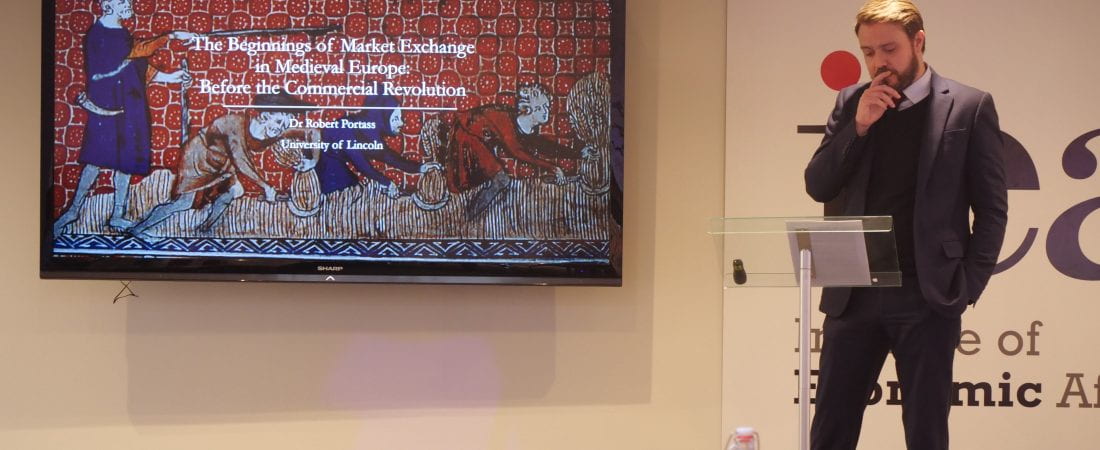Markets Before Modernity

Markets – simply put, institutions designed to facilitate and structure exchange – tend to get a bad press. Think back to the financial crisis of 2007-08, the damaging consequences of which were felt throughout the world. That crisis persuaded many people that markets cause as many problems as they solve, and a handful of eminent economists and political commentators went even further in their criticisms, intoning gravely that the end of private ownership, the accumulation of capital, and even wage labour was nigh – and good riddance!
But how do markets function, where do they come from, and what benefits do they bring? Indeed, can we even understand how and with what effect markets shape our lives today if we do not explore their origins, the various forms they have taken in the past, and the enormous impact they have had on economic – and therefore also social, cultural and political – development?
As a historian of the society and economy of medieval Europe, I explore these subjects in my research, which is why in December 2023 and January 2024, I found myself addressing these questions at the Institute of Economic Affairs in London. The first of my collaborations with the IEA took the form of an interview, largely centred on discussing some of the ideas I developed in an article I wrote in 2020 (Peasants, Market Exchange and Economic Agency in North-Western Iberia, c.850–c.1050* | Past & Present | Oxford Academic (oup.com)), which has subsequently appeared in the leading journal Past & Present (Ssi History ranking [ 2022] 4 out of 101 journals). A video of this interview will be uploaded to the IEA’s YouTube channel in due course; but what struck me most forcefully, both during and since the interview, is that our discussion demonstrated the potential applications of research on pre-modern peasant societies in different fields. For example, the end of the interview saw us touch briefly on how discussion of pre-modern peasant economies can help us to understand the world’s remaining peasant economies – with possible synergies emerging between historians and specialists in development economics.
On my return to the IEA in January 2024, I gave a research paper on the subject of markets in the Middle Ages, in which I tried to explain how we enrich our perspectives by considering economic complexity in the pre-modern world. The audience was knowledgeable, intellectually curious, and open-minded, and the whole event was a model of how academic debate should take place. The discussion that followed the paper was very interesting, and – I confess – it was nice to receive questions from people who do not spend much of their time thinking about the Middle Ages! All in all, it was an enjoyable experience to share my research with the IEA and to forge links with policy professionals, and I thank the Lincoln Policy Hub for its financial support of these endeavours.
But why look to forge such connections across disciplines in the first place? After all, medievalists are often told that whatever the scholarly or technical demands of our discipline, Medieval History isn’t relevant to modern concerns. Putting to one side the current obsession with the question of ‘relevance’, which has always seemed to me to demonstrate a pretty shallow understanding of what the Humanities are for, on this occasion it is quite clear that research on the Middle Ages found and indeed resonated with a constituency beyond the bounds of academia – to the mutual benefit of us all.
